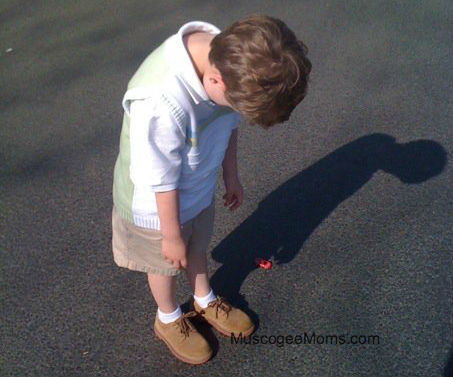Editor’s Note: There’s no cure for the terrible twos but you can make it easier on yourself and your child with these tips from Rachel Burns at ACES Extension Daily.
How do you deal with the terrible twos age group? Toddlers can be enough to stress out even seasoned parents.
“Toddlers and two-year-olds want to try out the use of their growing independence and power,” said Dr. Ellen Abell, who serves as an Alabama Extension specialist in human development and family studies.
“Saying no and showing resistance or defiance is a sign that they are growing normally. This is great for a child’s development, but challenging for parents. It’s difficult for parents to balance the needs their children have to try out their wings while at the same time keeping them safe and teaching them better ways to respond and behave.”
Dr. Abell cites patience, awareness, enthusiasm and humor as traits that parents of toddlers must have. She also adds that it is important to keep everything in perspective.
“Parents often think they aren’t doing a good job if their children don’t act the way they should. No matter how great parents are at parenting, children will make mistakes and poor choices. When parents feel responsible for all of their child’s misbehavior, their stress will rise. The higher that stress goes, the harder it is for parents to manage themselves. This can result in parenting behavior that is harsh and punitive. However, lots of research shows that children who are most cooperative and well behaved have parents who find ways to stay positive, warm and loving and who clearly let children know what behavior is expected of them.”
Dr. Abell serves as the front page editor for the Just in Time Parenting website, which lets parents know what to expect from their children and themselves. Below are some of their favorite tips on dealing with the tough toddler stage.
- Avoid using the word “No” with your toddler. Keep asking yourself, “How can I say this in a way that tells her what she CAN do?” The less you say “no” to a toddler, the less you’ll hear it back.
- Make it as easy as possible to do the right thing. Remove tempting dangers and breakables.
- Reduce time spent in activities that require your toddler’s patience or that might cause conflict. For example, long shopping trips are hard on nearly all parents and their toddlers; try to cut them short.
- Make a few good, reasonable rules – but not too many — that your toddler can understand and follow. Explain in simple words why you have the rule. Say something like, “You always hold my hand when we cross the street so I can keep you from being hurt.”
- Remember that your child is growing fast, but her ability to understand and remember all the rules is limited.
- Be firm but patient in enforcing rules. Look for safe ways to let her choose between two things — so she can practice “doing it myself.”
Extension Daily is the official blog of the Alabama Cooperative Extension System (ACES). Reprinted with permission.




